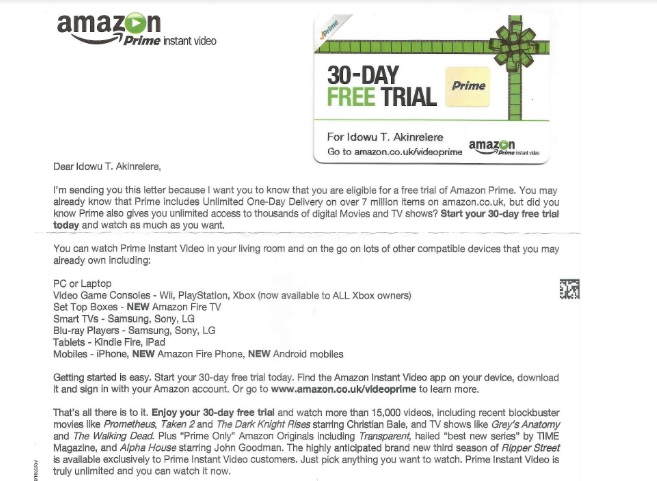The recent layoffs within the industry, the Jumia consolidation, and the not so heart-warming 2016 quarterly reports of the Africa Internet Group (parent company of Jumia) and Kinnevik have made a few people predict doom and gloom when it comes to eCommerce in Nigeria.
Suggested Read: Of funding sprees, low ROIs and massive layoffs: The future of eCommerce in Nigeria
In as much that I understand that Nigeria may not yet be able to support more than one major eCommerce player at the moment, I believe that we are yet to scratch the surface.
We need to understand that Konga, Jumia, VConnet, e.t.c are eCommerce marketplaces, thus leaving out lots of room for niche eCommerce sites to spring up and claim their territories - provided that their approach is strategic and well executed.
Online marketplaces like Konga and Jumia have their advantages in that it is easier for you as a retailer to open up a storefront on them instead starting your own eCommerce store. In addition, these platforms act as powerful marketing engines. However, they have their own inherent disadvantages which would have bad effect you as a retailer on the long run.
This post is about identify how eCommerce marketplaces affect retailers negatively, and how they can leverage and piggyback eCommerce marketplaces to grow their own eCommerce stores.
Disadvantages of eCommerce marketplaces for retailers
This post intends identify how eCommerce marketplaces affect retailers negatively, and how they can leverage and piggyback eCommerce marketplaces to grow their own eCommerce stores.
The sale is yours but the costumers are theirs
By their inherent nature, eCommerce marketplaces are not designed to help merchants push their individual brand identities. Most ecommerce market places in Nigeria provide little or no means for merchants to differentiate themselves. Most buyers on Konga and Jumia today do not know that they are buying from third party merchants like you -- they think that they are buying from Konga or Jumia directly. Marketplace owners gain all the valuable credit for a happy customer whose needs were actually met by the retailer. This is further explained here by Oyihoma Saleh, CEO of Kosavadeals.com

Be the smartest in the room
Give it a try, you can unsubscribe anytime. Privacy Policy.
Suggested Read: Why Online Marketplaces are not helping eCommerce grow in Nigeria
You do not have access to your customer's data
When it comes to creating a successful online enterprise - be it eCommerce, app development, social media, or games, anybody worth his salt would tell you that "Data is King". eCommerce marketplaces do not give you access or insights to your customers data. You don't have access to any of your customers data in a meaningful form that would enable you to use it to make business decisions, advertise to them or remarket to them.
As a merchant, it is hard for you to differentiate
On an eCommerce marketplace, you cannot create your own unique buyer experience. When you have your product placed side by side with that of other merchants selling identical products, the only way to differentiate is to compete based on price.
Even when you have a better proposition than the other merchant, there is no way to show that and differentiate your.
Issues with quality and standard
The biggest strength of Konga, Jumia and other online marketplaces is also their biggest weakness. They sell everything from everybody. As a result they have little or no way of verifying the quality of the products merchants sell on their platforms. This makes it easy for people to sell substandard products on their platforms.
How to piggyback On Konga and Jumia to grow your own eCommerce store
Have a new understanding of short term and long term goals
Retailers need to understand even though marketplaces are great for cash-flow on the short run, they are not sufficient enough for longer term incremental growth and brand recognition. They need to have a short term goal of cashflow (which online marketplaces provide) as well a longer term goal of brand recognition which would come from with them developing their own online stores.
Retailers also need to understand that marketplaces storefronts should just be a part of their online strategy. For any business to grow it needs to build a loyal following of people who will champion their brand and spread word of their amazing shopping experience and online eCommerce marketplaces are not designed for that.
Develop a strong business proposition and find your niche
The biggest strength of Konga and Jumia is also their biggest weakness. They sell everything. There is no way one can be good at everything. This is also their biggest flaw. Look for a narrow niche to carve for yourself and do battle. Develop a strong business proposition that would make your customers reasons to come back to you over and over again. If your customer know you care, they’ll come back over and over again.
Open up multiple storefronts, as well as your own eCommerce store
Now that we have established the need for retailers to have a distinct business proposition, the need to understand that longer term brand recognition is required for growth and also that online marketplaces are only great for providing sales via their strong marketing engines, retailers need to open up as many store fronts as the can handle on different eCommerce marketplaces (Konga, Jumia, Vconnect, SMEMarketHub e.t.c).
This is important so that retailers can leverage on their strong marketing engines to get new customers in the short run, so that they can divert and convert such customers to theirs for the long run. A simple method of conversion is explained in the next point.
Divert and convert your customers from your market place storefronts to your own eCommerce site
Most merchants on eCommerce marketplaces only include the official invoice of the eCommerce marketplace with the product when sending purchased products to customers. This is a very big mistake. The self fulfilment process offered by eCommerce marketplaces provides marketplace merchants and retailers the opportunity to reach out to buyers on a personal level with the aim of diverting and converting such customers.
When sending products to customers that make purchases from you via your marketplace store fronts, don't just include the official marketplace invoice - include your own branded invoice. Go further and get personal with them by including a letter from you about your value propositions as well as the link your own eCommerce store with a discount code to be used on your own eCommerce store.
Amazon uses this strategy whenever it lunches a new product. They make it a point of duty to include a letter introducing the new product or service with a discount code. Below is a copy of a letter I got from them with my package when they just launched Amazon Prime.
The main purpose of the discount code is to act as a bait and divert such customers from the eCommerce marketplace to your own eCommerce store.
Gradually shift more attention to your own eCommerce site
Once you feel that you have a level of brand recognition, you can then gradually scale down your various eCommerce marketplace storefronts and concentrate your efforts on your own eCommerce site.
I strongly believe that retailers looking to sell products online need to have their own online eCommerce stores backed by strong business propositions for them to grow their businesses and harness the opportunities created as more Nigerians come online.
Have any thoughts? I'd like to hear them
Photo Credit: zouzouwizman / reynermedia / Robert S. Donovan / RM Ampongan / Jirka "JR" Ruta via Compfight cc


























